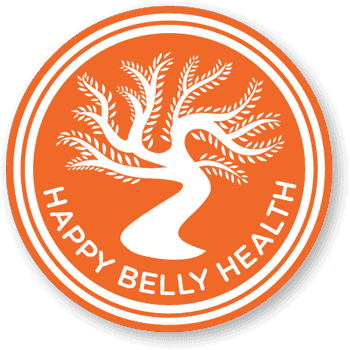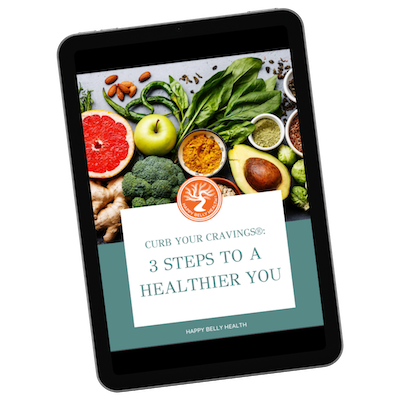
Being healthy is more than just eating well and exercising regularly. Being healthy includes managing stress. The human body is well designed to weather stress. Just not on a constant basis. The human nervous system has two primary modes: Sympathetic (SNS) and parasympathetic (PNS). The sympathetic mode promotes survival. It prioritizes our ability to fight, flight, and hide as necessary during times of threat and stress. In contrast, the parasympathetic mode promotes thriving. It prioritizes our ability to rest, digest, heal, and procreate. We need both modes, but the body cannot be in both modes at once.
Generally, the body is not going to choose to thrive via the PNS unless our survival seems assured. Our body is constantly sensing our environment for cues and clues about the status of our world. The largest, most influential component of that environment is our thoughts. Are we relaxed, secure, and content, so it is safe to be in a PNS mode and thrive? Or are we tense, angry, vigilant, ruminating, or fearful, so the body believes it needs to protect us by being in a SNS mode? No matter what “story” we might tell ourselves (or others) to rationalize or justify our stress, our body knows the truth about how we feel and is going to respond accordingly.
To promote survival, a SNS mode may promote higher cortisol, higher blood sugar, higher blood pressure, poor sleep, and anxiety (all important to stay alert and run and fight with stamina). At the same time, functions such as digestion, immunity, and detoxification will be notably impaired, on purpose. Chronic stress can consequently promote chronic diseases such as diabetes, hypertension, atherosclerosis, IBS, obesity, autoimmune diseases and can negatively affect fertility.
Having clear skin, lots of energy, a healthy weight, good cognitive function, healthy pulse and blood pressure, easy digestion and bowel movements, libido and fertility, and deep restful sleep are all gifts of PNS activation. If you are lacking in these areas of thriving, it’s time for some self-reflection. We invite you to not just read through this list quickly, but actually take some time to reflect and perhaps journal with your honest thoughts and observations:
- What daily choices might be causing you to be in sympathetic nervous system mode?
- Which of these might you have some control over and can take action to make change?
- Is your plate too full? What in your life can you get courageous and start saying “no” to?
- Where you cannot control circumstances, can you change your perspective?
- Can you choose to let go of any old grievances or guilt?
- How much Vitamin J (joy) and Vitamin P (pleasure) are in your life on a daily basis?
- Are you choosing to spend enough time with the people you care about?
- Even with your various responsibilities (what you may “have to do”), are you choosing to spend time regularly doing what you most Want to be doing?
Now that you’ve had some time to reflect on your daily choices, let’s review some opportunities to shift our life towards a more parasympathetic experience. First, it’s important to understand the role of the vagus nerve. The vagus nerve is the 10th cranial nerve, which is responsible for the parasympathetic control of the majority of our internal organs, including the heart, lungs, gonads, and digestive tract. Under chronic stress, there can be low vagal tone. Here are some ways to improve your vagal tone and thus shift your body towards the PNS:
- Reduce obligations (this may take some courage to say “no” more often and prioritize your self-care and health vs. feeling a compulsion to say “yes” all the time)
- Reduce exposure to EMFs (e.g. less time on electronics)
- Reduce exposure to stressful situations
- Highly reduce your time taking in social media drama, blog rants, mainstream newscasts
- Watch comedies instead of the violent action films or suspenseful thrillers
- Spend time with more people who bring you joy instead of those who are difficult or critical
- Avoid over-scheduling, procrastinating and unrealistic deadlines. Make room in your life.
- Ask for help or hire out to allow more time for rest, hobbies, self-care and relationships
- Improve sleep (go to bed earlier, reduce awakenings, increase total sleep time)
- Get early morning sunlight
- Take walks, especially in nature (appreciate the beauty around you)
- Singing, humming, chanting*
- Laughter*
- Gargling*
- Deep breathing*
- Practice gratitude (e.g. via journaling or verbally with others)
- Meditation
- Yoga, tai chi and Qigong
- Choose forms of exercise that bring you joy, social connection and/or make you stronger (avoid over-exercising)
- Schedule self-care (massage, reflexology, acupuncture, craniosacral therapy)
- Spend time doing hobbies you love
- Prioritize social connections
- Hugs and cuddle time (with people and pets)
These strategies also have the benefit of physically stimulating the vagus nerve
The goal is not to do all of these things, but rather to experiment with finding the ones that most resonate with you, that you will enjoy, and that you can most easily incorporate into your life sustainably.
If you would like some customized support to delve deeper into your health and nutrition, let’s chat.
© Purpose Inc., The School of Applied Functional MedicineTM





